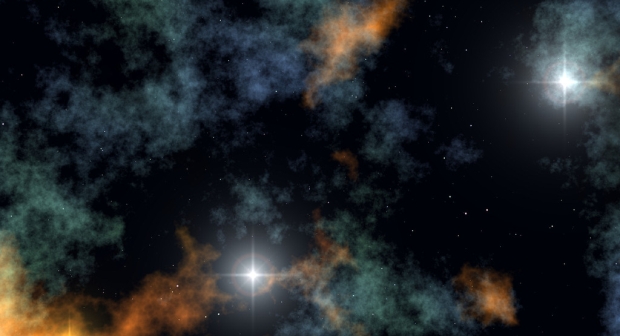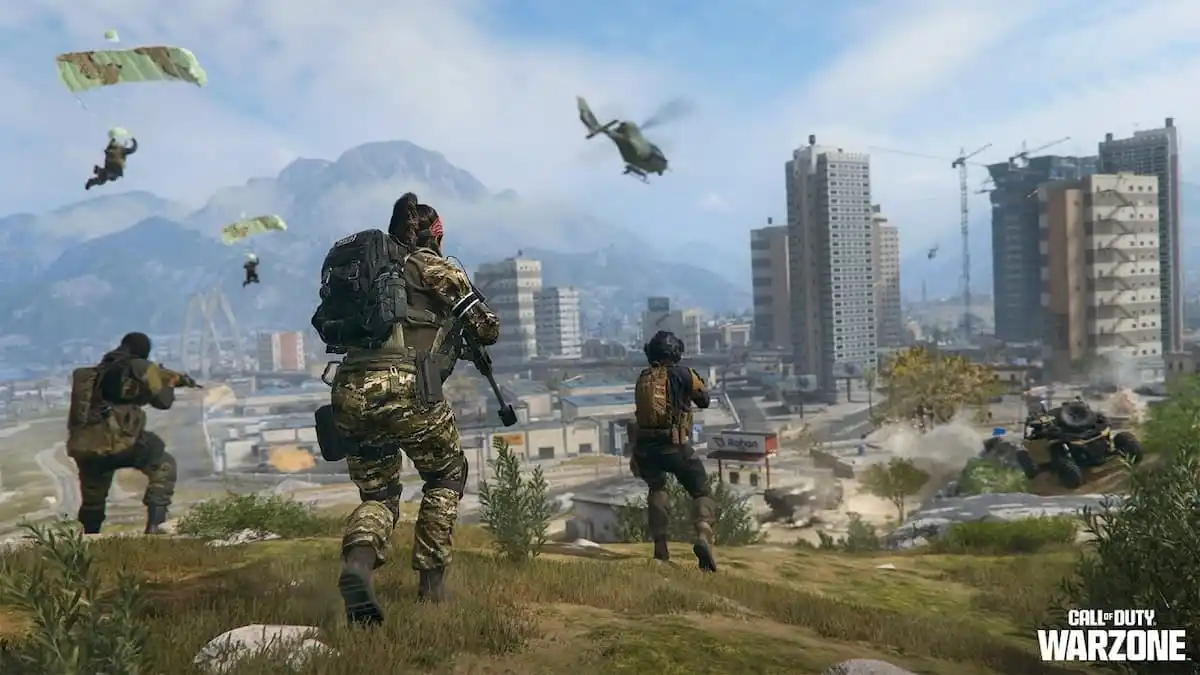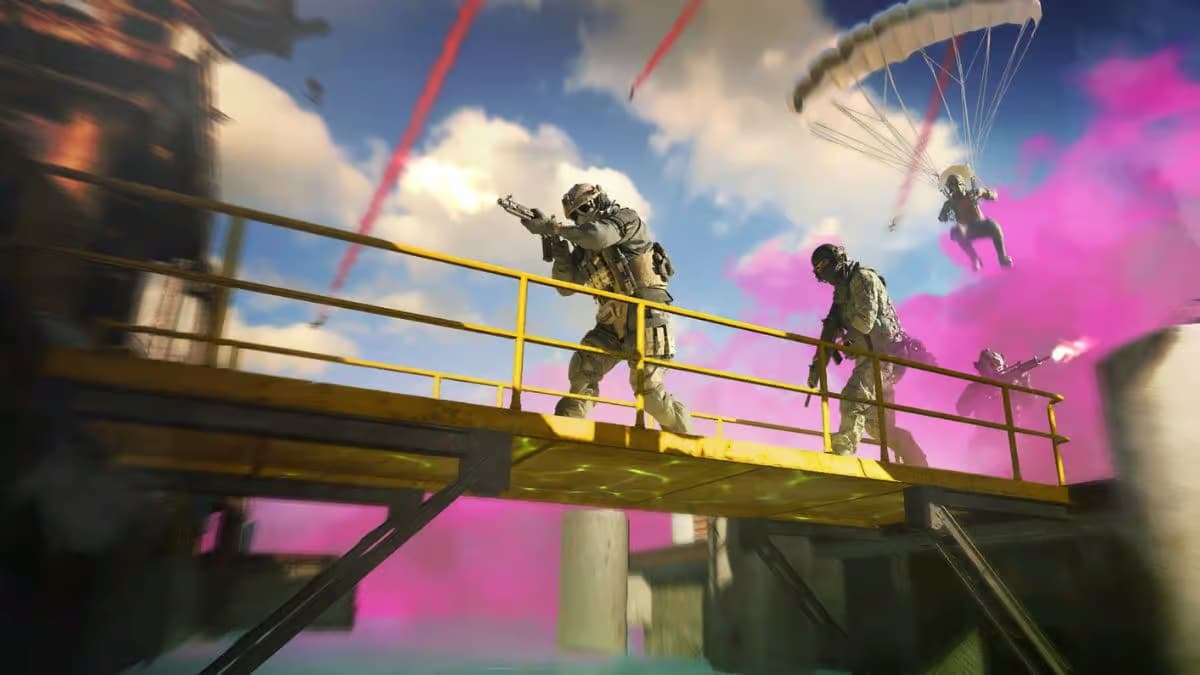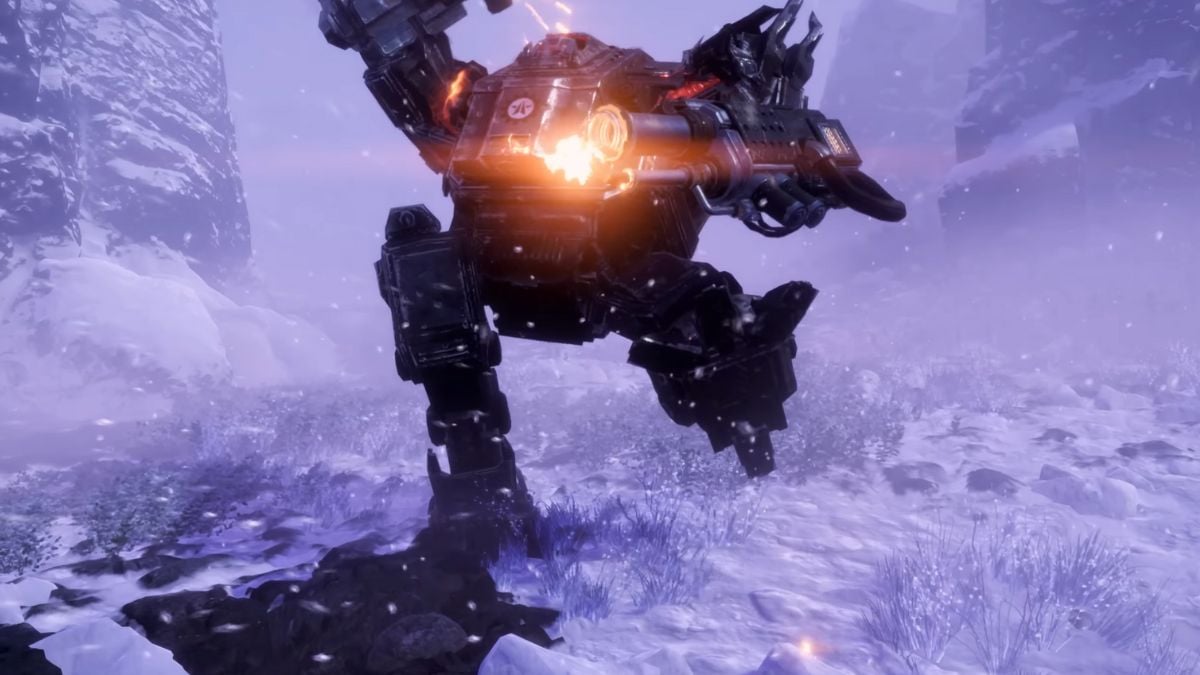[It’s time for another Monthly Musing — the monthly community blog theme that provides readers with a chance to get their articles and discussions printed on the frontpage. — CTZ]
One can count many factors in game design as being crucial elements for memorable gameplay. Great graphics, rich battle systems, or interesting plots are all pivotal when creating a sense of wonder and intrigue for the average player. For me, the world in which the game takes place has always been regarded as the most important. I’m sure that we can each say that we’ve experienced a seemingly infinite variety of game worlds, ranging from hyper-realistic dramatizations of modern day New York, to the four walls encapsulating the Tetris playing field. Each world provides the rules of gameplay, as well as the options in which a player can react to challenging situations. One might say that the world itself is a character within a game as a whole; giving direction to it’s inhabitants, and guidance to the player in control.
When I was younger, I always wondered what it would be like to enter a world like this, and to undertake an epic adventure. The basic arithmetic I studied in elementary school seemed petty when compared to slaying dragons or saving princesses. Yes, I realized the fact that there would be chasms filled with spikes around every corner. And yes, I realized that there would be robots who might hurdle saw blades at me, possibly truncating my torso. I was willing to take the risk. Our world needed somebody with a broader skill set than long division and being able to determine the lowest common denominator of complex fractions.
So why can’t these worlds be real? How do I know that there isn’t a plummer squashing the f*ck out of walking mushrooms somewhere out there? How do I know that there aren’t worlds filled with yellow men who simultaneously eat pellets and avoid a group of technicolored ghosts? Am I just crazy, or is it unreasonable to believe that there might be alternate worlds where the events of our wildest imagination can actually take place?
Surprisingly, no. I’m not alone in this thought.

Perhaps one of the most prolific characters in videogame history is the Italian-accented Mario. He’s appeared in an incredibly vast array of Nintendo titles, performing tasks that span a mind-boggling expanse. This guy must have earned at least 20 college degrees in able to perform the many roles we’ve seem him in.
I believe Mario to first and foremost be considered a plumber, but have a hard time naming a ‘close second’ when trying to describe his many professions. He’s been a doctor, an athlete, a boxing referee, a race car driver, a baker, a painter, and even a babysitter. This guy’s seriously amazing to be able to manage his time so effectively. I would hate to be his personal assistant (can you imagine the scheduling conflicts?). It makes you wonder … how has he been able to succeed at so many roles?
Popular science has provided us with a few hypotheses as to how our own universe works, which may be applicable to that of Mario’s. Once such theory is what some call the Mulitverse Theory. Simply put, the Multiverse Theory can be explained as follows:
We live in one, of an infinite amount of existing universes. These different universes can run parallel with one another, and carry various degrees of similarity. They can also be absurdly different than our own …
The latter is where flying turtles come into play.
In the world of Mario, it seems safe to assume that such multiverses exist (ruling out the diagnosis of Mario having a case of Mulitple Personality Disorder). It would also be safe to assume that each time we pick up a controller and force Mario to jump, that he is completely unaware of his other-worldly counter parts. Mario exists in a manner of performing specific tasks, without any consideration for ‘his’ many other roles. But the fact remains that these other parallel worlds do exists, with or without Mario’s awareness.

Another example of game worlds existing in an unconventional time line is that of Link. The world typically referred to as Hyrule.
We, as players, can draw obvious parallels between Link’s world and to the world of Mario. We can see that there are numerous titles in each series, both centered around their respective central characters. But upon closer examination, we start to see how incredibly different the worlds of Mario and Link actually are. Consider the following:
1>Mario is always Mario, performing a different duty in a variety of games.
2>Link tends to not be be the same person in each game, yet is always performing a similar duty.
Link is not a chef. Link is not an architect. Link is not a baseball player. Link’s defining characteristic is that he is a young man who saves the world. Off the top of my head, I can think of at least six times I’ve saved the world while controlling Link. And if you stop to consider the life span of most living beings, they don’t really live beyond 100 years. Does this mean that link has an incredibly long life span in which he can repeatedly save the world? Or does it mean that ‘Link’ is a moniker we have given to a series of heroes who have saved the world a hundred times over?
The idea of Link being more than one person throughout the Zelda series is definitely not a new one, and is often made quite apparent while playing various titles in the Zelda universe. In the GameCube title, The Legend of Zelda: Four Sword Adventures, we are bombarded with examples where our hero’s identity as a singular being comes into question. Firstly, the premise of the game is that of Link splitting himself into four- where all of Link’s incarnations act in tandem to defeat a common foe. Secondly, one of Link’s nemeses is a shadowy version of himself, Shadow Link.
Beyond this singular title, the series as a whole makes constant reference to the manipulation of time in such titles as A Link to the Past, Ocarina of Time, Oracle of Ages, and Phantom Hourglass. These titles by themselves lend themselves to proving that Link defies conventional properties of time. This hero seems to be immortal.
The controversy over Hyrule’s chronology has been widely debated, but a theory of the existence of more than one ‘Link’ is widely accepted. Once again, modern science offers a theory to explain the mysteries of Link’s predicament; a Cyclic model of time. Popularized by Einstein, a cyclical model of time can be simply described:
The universe is in an undying cycle, continually expanding and contracting. Continually re-creating similar results upon each completed cycle.
If we converted this theory into a more mundane example, it could be related via simple analogy: Each day I wake up, go to work, come home, and go to sleep. The cycle repeats the next day.
With each breath of a cyclic universe, a reoccurring pattern emerges. History repeats itself. Life evolves. Man creates technology. Wars start. Princesses need saving. Unsuspecting heroes emerge to restore peace to all that is known.
Link has been reborn in the same world for an immeasurable amount of years.

I once dreamed of being on a planet infested by simple biological organisms that had evolved into a super-massive oppositional force. I alone, armed with pistol, bombs, and rocket launcher, battled an onslaught of blood-thirsty aliens, who were bent on devouring everything in sight.
In the end, I was trampled upon by the marauding forces. I was left for dead by an inhuman species who intended on consuming everything adjacent to their hungry mouths. In the final seconds of my life, I wondered if I would be able to finish my quest … or if this planet was truly doomed. I wondered if I had failed my fellow humans who had trusted me with grave responsibility. All seemed futile. I was done for. My ears perked as I listened for the footsteps of Death to approach. Instead, an all too familiar beeping noise made itself known. This beeping noise was declaring that my life was at it’s end.
I’m fucked … I mutter to myself.
And then the next screen came up. It asked a simple question.
Continue?
Yes, please! I would like to continue on my quest (if only I could remember this 20 digit long password … )
The Metroid series, for me, provided a truly unique world when compared to that of Mario and Zelda. I can imagine being a plumber. I can imagine being a little dude wearing a green tunic and hat, swinging a sword at nearly anything that moved. But a bounty hunter from space who is sent to battle a Mother Brain? Seriously, come on. Thank shit is wacky. And by wacky, I mean amazing.

Did I really dream this? I’m not sure. But what I am sure of is the fact that dreams can have a serious impact on our own personal realities. I’m also quite confident that the ideas and thoughts we have as individuals can significantly alter the world around us. It makes me wonder in the way I behave, in and out of sleep, affects my surrounding world.
Aristotle and other early philosophers had similar questions. These questions led to more questions, which brought them to the questioning of an existence beyond a physical body. Eventually they coined the term metaphysics. A study that looks into the issues beyond all physical life. A study that might explain how those living in our surrounding world might actually affect the rest of it’s inhabitants.
As time progressed, the idea of Metaphysics became a much a more complex and pandering study. Perhaps one of it’s more interesting ideas is that while in altered/dream states, people can project their non-physical selves into other worlds. Followers of this belief include hippies, drug-users, shamans and the radically left. The same kind of people who believe in aliens (who might even resemble tiny, floating brains). These kinds of people tend to be some of my favorite.
Is it possible that there are many worlds that exist beyond our own? Does our world truly fall circumstance to an ever expanding, and detracting universe? Can we spiritually travel into worlds not our own?
I sure hope so.
I hope that there is something that is beyond the scope of our tangible reach, and that perhaps other universes run parallel to our own. I find it comforting to think that these parallel worlds might be all around us. Worlds where we don’t get sick, where our pets lived forever, and where jobs were something we chose to have. Worlds in which my previous life was guided by a relentlessness urge to defeat an evil wizard. Worlds where starting over simply means selecting ‘continue’.
I truly hope that the previously mentioned beliefs of Multiverses and Astral Projection are more than science fiction mumbo-jumbo, and that somewhere out there is and man crawling around in giant sewers to collect coins the size of his own body. And in a way, I suppose that there is solid proof that these worlds do indeed exist. They’re literally at my fingertips. I visit them whenever I pick up a controller and turn my Nintendo on.




